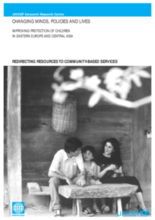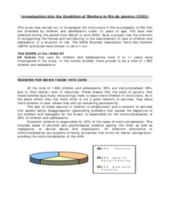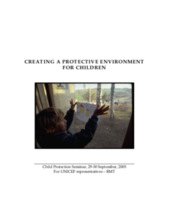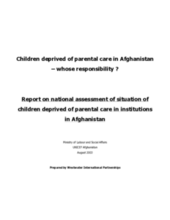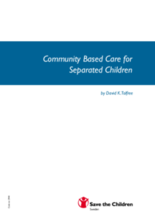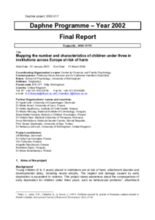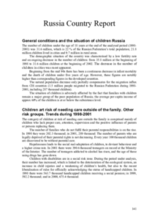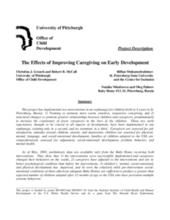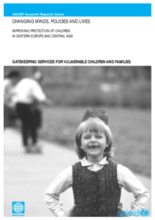Displaying 651 - 660 of 691
Provides an overview of social service provision in Eastern Europe and Central Asia, and provides information on ways to move resources away from institutional care, and into community-based social services. Contains specific examples from Latvia, Iceland, Sweden, Romania and other transitioning countries.
This research study provides statistical information on institutional care of children under the age of 12 in Rio de Janeiro, Brazil. Interviews with institutions and children are conducted, and reasons for separation from family, length of time in care, status of family relationship, religious orientation and financial support of the institutions are highlighted.
This report is the result of a seminar held in Kazakhstan 2004. It focuses on social welfare sector reform, and includes topics such as expanding legislative agendas and financing frameworks, as well as gate keeping. Case studies of reform processes from Romania, Tajikistan and Serbia are discussed. Includes conference agenda.
Situation analysis of Afghan children living in institutional care. Includes detailed recommendations for strengthening policies and services in the child welfare system.
A paper discussing the shortcomings of systems in which separated children are placed into residential/ institutional forms of care. It also considers community-based and some other forms of care as alternative approaches to preventing unnecessary separation of children from their families.
This 15-month project aimed to map the number and characteristics of children under three placed in European institutions for more than three months without a parent as this information was previously unknown.
Country report of Russia on the situation of children in residential care in anticipation of the Second International Conference on Children and Residential Care: New Strategies for a New Millennium, to be held in Stockholm 12 – 15 May 2003.
A research study on the policies, finances and current state of care of vulnerable children in Tajikistan. Includes data on budgeting and expenditures around institutional care, as well as recommendations for the creation of short-term and long-term care alternatives.
Through a review of orphanages in St. Petersburg, Russia, this study examines the causal roles of consistency in caregivers and appropriate caregiving behaviors in the social, emotional, and development of young children.
Practical guidance, case examples, and tools to assess, monitor, and evaluate child protection services and facilitate reform away from institutionalization of children.

